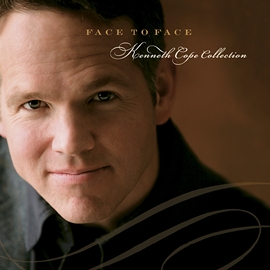(Continued from last week…)
Practice makes progress; Jesus makes perfect.
Years ago, I felt like we, as a Church, didn’t talk much about grace and how it specifically pertains to our salvation and perfection. I kept wondering: “Who will say ‘grace’? Are we afraid of that word?” However, in the last several years, I feel like we, in the Church, have come into a grace period of sorts—where grace is mentioned and discussed much more openly.
 Our Bible Dictionary defines grace as “divine means of help or strength, given through the bounteous love and mercy of Jesus Christ. It is through the grace of the Lord Jesus, made possible by his atoning sacrifice, that mankind will be raised to immortality, every person receiving his body from the grave in a condition of everlasting life. It is likewise through the grace of the Lord that individuals, through faith in the atonement of Jesus Christ and repentance of their sins, receive strength and assistance to do good works that they otherwise would not be able to maintain if left to their own means. This grace is an enabling power that allows men and women to lay hold on eternal life and exaltation after they have expended their own best efforts” (Bible Dictionary, p. 697).
Our Bible Dictionary defines grace as “divine means of help or strength, given through the bounteous love and mercy of Jesus Christ. It is through the grace of the Lord Jesus, made possible by his atoning sacrifice, that mankind will be raised to immortality, every person receiving his body from the grave in a condition of everlasting life. It is likewise through the grace of the Lord that individuals, through faith in the atonement of Jesus Christ and repentance of their sins, receive strength and assistance to do good works that they otherwise would not be able to maintain if left to their own means. This grace is an enabling power that allows men and women to lay hold on eternal life and exaltation after they have expended their own best efforts” (Bible Dictionary, p. 697).
However, for clarification, I feel that it must be said that this grace isn’t just reserved for “after.” It is here to strengthen and assist us now, during the expending of our own best efforts. For without grace we could not give our “best.” Additionally, all men are weak and fallen. And God is not happily magnified by our weakness except when His grace is made manifest in strengthening us.
The Savior’s grace comes now. It comes before and after. His grace permeates through and through.
Then what of this word “after” in the “after all we can do” (2 Nephi 25: 23)? This is how I look at it: Even after all we can possibly do—after all that is said and done—it is still by grace that we are saved and perfected. All of the righteous works that we could conceivably do could never save us from the eternal punishment due us because of our sins. And all of the righteous works that we could potentially do could never change us into beings perfectly fit and worthy to dwell in the holy presence of God. Grace is required in both instances. Grace brings salvation from sins. Grace brings exaltation of character.
We will discuss exaltation of character in the next post, but for now, we must first talk about the “enabling power” to do good works, and make progress in our doing.
GRACE FOR GRACE
In the scriptures we see the idea of receiving “grace for grace,” or growing from “grace to grace” (D&C 93: 12-13, 20). In fact, the scriptures say that Jesus, Himself, became perfect in this way.
“…the Only Begotten of the Father….received not of the fulness at the first, but received grace for grace; And he…continued from grace to grace, until he received a fulness; And thus he was called the Son of God, because he received not a fulness at the first” (D&C 93: 11-14). Now, whether this fulness came to Jesus in pre-mortality, before His birth, or whether the Prophet John was speaking about Jesus during His mortal life, the fact is our Savior grew toward His perfection. And then Jesus says that this is how we grow toward perfection. “I give unto you these sayings that you may…come unto the Father in my name, and in due time receive of his fulness: For if you keep my commandments you shall receive of his fulness…therefore, I say unto you, you shall receive grace for grace” (D&C 93: 19-20).
The Prophet Mormon, after lamenting the weakness, and foolishness, and devilishness of men, said it this way: “And may God grant, in his great fulness, that men might be brought unto repentance and good works, that they might be restored unto grace for grace, according to their works” (Helaman 12: 24). So, this is how I see it: Our good works are the fruit of our sincere repentance. And by repentance, we are restored unto the pattern the Lord set up, the process of receiving grace—His enabling power—and taking that grace and doing what it has given us the strength to do. Then our Lord gives us more grace to do more—we are in a better position to do more because of His previous endowment of grace that we received and acted upon.
Here’s an illustration: What if I were in bed, energy-less, no strength, weak, unable to move. Then all of the sudden, I feel this energy come into me. I feel my bodily weakness disappear somewhat. I can continue to lie there, or I can use the energy I’ve just been infused with and make myself get out of bed. It’s my choice, but my strength and encouragement to get out of bed came from the Lord. That’s how I see grace. A wave washes over us and we see the need to repent for a certain sin, or we get an idea to help someone, or we have a stronger desire to go and perform a certain calling, or we’re given an extra measure of patience in the middle of a chaotic moment, or we have a flash of inspiration, or we recognize an answer to a prayer, etc. This is grace—divine means of help or strength. What do we do with these endowments of grace? Do we use them when we get them? Are we praying for these gifts of grace? That is how we grow to perfection, using our agency to profit from the grace that the Lord gives us, that He might grant us more. We receive “grace for grace,” or another endowment of grace for the one we just used; and we grow from “grace to grace,” one endowment of grace to the next. I believe that this is the pattern our Father has ordained for our perfection—for our growth and eventual arrival at the stature of the fulness of Christ. Jesus, Himself grew from grace to grace—one endowment of His Father’s strength, knowledge, and goodness to the next. And so can we.
“Let us therefore come boldly unto the throne of grace, that we may obtain mercy, and find grace to help in time of need” (Hebrews 4: 16).
(to be continued…)































Kenneth,
This is a great sermon on Grace. I particularly like “His grace permeates through and through.”
Your thoughts take me all the way back to the post-transgression of Adam and Eve in the Garden… how God graced them both to enable them for the challenges ahead.
Thanks for sharing a well-articulated message on a subject far too often overlooked.
Ken
Hi Ken! Thanks for your kindness and insight. Yes…He certainly “graced” them then…they would need it tremendously to face the sudden change and painful separation from His glorious presence.
Bless you greatly, brother!
Kenneth :)